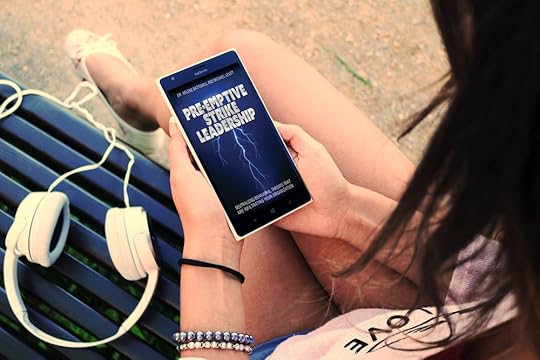Michael Levitt's Blog, page 135
May 19, 2019
How Entrepreneurs Can Avoid Burnout

The backbone of business is the entrepreneur that first came up with an idea. A dream. A thought. Something that they felt would make this world better, and in turn, make the entrepreneur’s life better.
The device you’re reading this post on was created by entrepreneurs. The website tools I use were created by entrepreneurs. The coffee I’m drinking while writing this post was created by, you guessed it, entrepreneurs.
Nothing we use or consume would be possible without entrepreneurs.
We often don’t pay any attention to the creative geniuses that create the everyday products and services we use. Yes, we know the famous ones (Tesla, Edison, Ford, Jobs, Woz, Gates, Musk, Bezos, Levitt ;) ) but how many non-famous people should we be thanking for creating what we use.
We need entrepreneurs as much as we need oxygen and clean water.
Entreprenurs, small business owners, and solopreneurs (one-person shops) put in some insane hours in the beginning of their companies, in order to reach the success levels they so richly deserve.
I often joke people quit their 9-5 job, for a 9-Midnight job. There is a lot to do when launching an organization, such as corporation paperwork, branding, figuring out who your ideal clients are, etc.
Often times entrepreneurs are wearing hats that do not fit them. They do this because they aren’t willing/ready/able to spend some funds up front to get things moving along.
I’m a big infrastructure guy. Have a solid foundation and back office, so you can focus most of your attention on client needs, and your organization will likely stick around.
In a recent interview with Rob Braiman, we talked about how 8 out of 10 new businesses fail within first 3 years. An overlooked fact is that 1 of the surviving 2 of those 10 businesses fail a few years after that. So in roughly 5-7 years, 1 out of 10 new businesses survive. Is your business that one of ten that survives?
Entrepreneurs burn out and often walk away from their businesses before they reach the success levels they so longed to reach. They give up just before things “take off” in their business.
How can this be avoided?Avoid all the shiny objects. Entrepreneurs are often guilty of trying all the latest tools, following what others are doing, building funnels, etc which is taking them away from their core business. Pick the fkn Chakra (inside joke) and run with it
Delegate. Delegate. Delegate. Offload admin related tasks to virtual assistants, friends or colleagues that you can barter with
Ask yourself “Who Are We?” Too often entrepreneurs want to be the Wal-Mart or Amazon of their business, offering a bit of everything. If you offer everything, you’ll actually offer nothing to your potential customers
Have an off-switch for work. Schedule your work days to match your energy levels, but don’t work more than 7-8 hours per day, and take weekends off as much as possible. If that’s not possible, then take 2 days off during a 7-day period. Your productivity drops off dramatically, and studies are showing that people typically only are productive 3-4 hours per day. Sooooo, maybe schedule your day to work a 5-hour shift, and see how productive and focused you can be
Take vacations. You need to get away from your work. At the end of 2018, I took almost 7 weeks off from Breakfast Leadership . Social media posts continued to be shared, I followed up with those that reached out to me directly, but I didn’t record any podcast interviews or client meetings for the last part of the year, and first 10 days of 2019. Why? I needed a break. If you don’t take a break, you WILL break.
Society needs your business to be successful. You have insights and have created something that will make our world better. Pace yourself, take the right steps, get the right help, and when the timing is right, behold the excitement you’ll have for you, and the people you serve.
May 12, 2019
How To Travel Without Burning Out

Travelling is taxing.
You have to get to the airport earlier, due to security checks, bag check in, long lines, etc. Parking can be a blast, especially if you’re flying out during busy travel days (think Mondays.)
Packing is also a ton of fun, because you have to pack for being away from home for some time, and depending on the time of year, you may encounter dramatic temperature swings on your trip.
With the cost of checked baggage, you don’t want to pack your entire wardrobe, as it could be more cost efficient to buy clothes when you get to your destination. #SadButTrue
Toss in sleeping in a different bed, potential time change, and longer days, and you can easily get stressed and burned out before you know it.
I’ve been travelling for decades for work, going to to client sites and conferences. Travelling before 9/11 and after are dramatically different, but as long as you know what to expect, and plan accordingly, your travel experience can be as stress free as possible.
Here’s my secret sauce on travelling as stress free as possible:
PackingWhen you travel, you are bringing a smaller version of your stuff (ode to George Carlin), so it’s important that you do bring things that you normally use on a daily basis. So many of us live on auto-pilot, so we are clueless what we actually use and do each day. We might want to toss in some mindfulness techniques in our lives, too. #JustSayin
I highly recommend packing cubes to keep like items together, which then you can take each cube to the intended destination. I have cubes for my toiletries that I’ll bring to the bathroom, cubes for storing my dirty clothes (so you don’t mix up clean and dirty clothes in your luggage, reducing your laundry work when you get home), and cubes for extra shoes (so you don’t get shoe residue on your clothes.
Travel sized items such as liquid bottles that are TSA approved helps you bring your favorite shampoos/conditioners/soaps without bringing full-sized bottles. This also helps on short trips, where you’re bringing a carry-on bag or really small suitcase.
(Pro-Tip): Make sure your carry-on bag is soft and smaller than the TSA limit size, because the airlines are making the overhead bins even smaller, so depending on when you can get on the plane, you may not be able to have your bag right by you.
Most hotels still have ironing boards and irons, but I did recently have to request one because my room didn’t have one in the room. I anticipate that this may become the norm going forward.
Learning how to pack your clothes to minimize wrinkling goes a long way in needing to dust off those ironing skills.
Pack one bonus day of under garments. Trust me on this one. If you get delayed on your trip back, or have some sort of accident, you’ll be thankful you have back up clothes. I also recommend keeping one pair of undergarments, a toothbrush with toothpaste, and deodorant in your carry-on bag, because if your flight is delayed to the next day, you may not have access to your luggage.
Mapping Out Your TripWith Google Maps, and other Internet search options, you have no excuse on not knowing what’s around your destination. Find out where your conference/client location is, and find out nearby restaurants, coffee shops, pharmacy and retail shops are, in case you need or want to visit these places during your trip.
Plan each day of your trip, if you want to visit any of these types of places and/or tourist attractions. Figure out which days work best to go to these things (Google Maps often says what days/times are busy for a variety of businesses and attractions, so you can plan accordingly.)
Does your hotel have free breakfast? Is it continental or a full option breakfast menu? If not, is there a restaurant nearby where you are staying? All important to know, because you don’t want to go to your client or conference hungry (or in my case, hangry.)
Airport FunGet there earlier than you need to. Yes, I know you’ll spend more time at airport, but you won’t be stressed. For fun, look at the faces of people waiting to go through security. You can spot those that are running risk of missing their flights. Don’t be that person.
If you travel at all (even one trip a year), I HIGHLY RECOMMEND you get TSA-PREcheck. This will save you HOURS of standing in lines, and you can keep your shoes and belts on.
Get your passport(s). I’m a dual citizen, so I carry passports for both countries that I am a citizen, because it makes travel easier for me. This, in combination with TSA-PRE makes my travel as stress free as possible. I often breeze through security in a matter of a few minutes, and can go to a lounge or grab breakfast/lunch/dinner while waiting for my flight.
Bring a book or your ebook reader. Relax. People watch. You’ll be relaxed while you’ll observe many people that are stressed beyond belief.
Hotel LogisticsOnce you get into your room, unpack. I used to keep most things in my luggage, but that's not how most of us live. Put away your clothes, hang up what needs to be hung up, and if you need to iron your clothes, I recommend doing that all at once, so it’s done and over with.
Get the room temperature cool. You’ll sleep better at night, which you will need to do, because as I mentioned earlier this is a foreign bed, pillows, etc.
If you’re a pillow snob and have to have your own type of pillow, then I highly recommend BYOP (Bring Your Own Pillow.) I find most hotel pillows are not as firm as I like to use, so if you’re concerned about proper sleep, bring your own pillow (note that you will need to pack lighter, to make room for your own head-resting device.)
Food ChoicesEating on the road is a complete pain, if you are like me and try to avoid the fast food options that are at every corner. Going back to your Google Mapping exercise, I recommend researching where you can find restaurants and/or grocery stores that carry your food that you can keep refrigerated. Note, most hotels don’t have kitchens for your personal use, so you’ll need to be creative on fruits and veggies.
I use shakes and other nutritional snacks for my breakfasts and lunches, which help keep my energy levels at proper levels, throughout my client work and conference workshops. You know that conferences have the carb-rich foods, where you crash after lunch, which is why the afternoon break has coffee and cookies, to spike your energy levels.
I skip those because my nutrition plan keeps me alert and energized throughout the day. I may sneak in a cookie though #CisForCookie.
Proper nutrition during your travel allows you to maintain energy levels, which helps reduce any stressors you’ll encounter being away from home.
SummaryFollowing the above suggestions will make your travel less stressful. Happy travelling!
April 26, 2019
Why Quality Sleep Helps With Burnout
We are hearing more and more that each of us need 7-8 hours of sleep every night. However, that sleep for many isn't quality sleep.
We hear the importance of sleep in our complete health. Our bodies heal while we are sleeping, from the damage that we do to our bodies (both intentional and unintentional) throughout our waking hours.
Lack of sleep significantly increases the chances of chronic diseases, fatigue, mistakes, emotional and physical challenges, etc.
We each go through stages of sleep and sleep cycles, but what’s crucial is that we have as much uninterrupted sleep as possible.
Too often, people are either not getting enough sleep, or not restful sleep.
During my burnout, I slept 7-8 hours per night, but it wasn’t quality sleep.
Why?
1. I wasn’t eating properly. My diet plan consisted of ordering through a window, and then driving around a corner to pay and get handed a brown bag.
2. I was under an increasing amount of stress with my job. Working for a start-up is not easy. This one was even more challenging due to the nature of the work, and the lack of boundaries I had in the work I performed.
3. Trying to people please. I was trying to be everything to everyone. Be a pillar in a small community. Make a difference in helping others. I had forgotten to help myself first.
Thus my sleep was spent repairing all the damage I was doing to my body, both mentally and physically. Eventually my body gave in, and kicked off my year of worst-case scenarios.
Now I sleep pretty well. I have a pillow that works for me. The room temperature is conducive to my liking. I have a sleep mask in case it’s too bright outside through the window blinds. I don’t consume a lot of caffeine or alcohol, I eat better, and most importantly, I have boundaries about my work and home life.
Happy to guide you to better sleep. Reach out to me at BreakfastLeadership.com

Photo by Vladislav Muslakov on Unsplash
Follow me on Twitter @bfastleadership, Facebook Breakfast Leadership, and on Instagram @bfastleadership.
I help people recover from or prevent burnout in their lives. Register here for my next webinar on going from burnout to your ideal life.
The Free From Burnout Parents Monthly Membership is now available. $29 per month. Sign up today
April 21, 2019
How Getting Outside Helps Your Burnout

Photo by Artyom PJ on Unsplash
We spend way too much time indoors. Get outside; leave the smartphone in your pocket. Notice what's going on around you.
We’re always connected. Connected to our phones, our thoughts, co-workers, loved ones. We rarely disconnect.
Remember when you were in areas that you couldn’t get cell phone coverage? Hard to find those places these days.
Even in campgrounds, some have WiFi. Talk about “roughing it.”
When was the last time you took a walk outside, with the intention to go for a walk? Not walking to get to a destination, but simply for a walk?
For some, it may be years since you did that type of exercise.
Our minds are cluttered with thoughts/worries/concerns. We rarely sit in silence, or get outside and listen to the sounds that are around us.
Even in the concrete jungles of our cities, you can calm yourself by simply listening to the sounds of the city.
Getting out into nature is crucial for taking a detox from our digital lives.
20 minutes a day in nature can reduce cortisol, aka the stress hormone.
Here’s some homework for you. Tomorrow I want you to go for a walk. Walk for 10 minutes. 5 minutes and then turn around and head back. If you go longer, I won’t grade your mark lower for that ;).
Start doing this 3 times per week. If you want to drive to a nearby park and then walk around the park, go for it. Do it during daylight hours (and as always be aware of your surroundings, don’t be foolish!)
Notice what you hear and what you see. I’ll give you a pass if you want to take pictures of some nature scenes. But don’t post them immediately to Instagram. It can wait.
Let me know what you experience after adding walks to your routine!
Follow me on Twitter @bfastleadership, Facebook Breakfast Leadership, and on Instagram @bfastleadership.
I help people recover from or prevent burnout in their lives. Register here for my next webinar on going from burnout to your ideal life.
April 14, 2019
How Essentialism Not Minimalism Helps Reduce Burnout

Photo by Isaac Benhesed on Unsplash
Live simply, have things in your life that serve your needs, purge and donate the rest.
For the longest time, I dreamed of being a minimalist. Someone that would only have a few things, and discarding the rest. Walking into a living room that had a couch, a table, a tv and not much else seemed to be perfect.
The environment I was in was not conducive for my desire of minimalism.
Minimalists often are described as someone that has one set of dishes, very few clothes, basics. In the smaller condo landscape of Toronto, this style of living is in alignment with the affordability of housing in this ever-growing city.
A few years ago I read Essentialism by Greg McKeown, which altered my perspective on things, and experiences.
Where minimalism has you having limited items, essentialism is to have the items that are essential to your desired living.
I used to have a huge DVD and CD collection. Also had a bunch of comic books, baseball and hockey cards, memorabilia, etc.
Most of those items have been sold and/or donated. My music is streamed, and when I do watch movies or TV I use streaming services or OTA (no cable!)
My books are mostly ebook flavor, although I tend to receive a couple dozen books every year to read/review by the author and/or publisher. Great gig!
Now my life consists of things that are essential to me, to accomplish what I want and choose to do in life.
I don’t need to rent a storage locker. I don’t have a basement full of things that I haven’t touched in months/years. People fail to realize they are spending money to store things they don’t use. You’re paying utilities on a larger property to have rooms that don’t get used, to store things that may have been of use to you before, but no longer are.
Much like the exercise of purging activities from your life every 6 months, you should periodically go through your belongings and see what you’re no longer using. Someone else could use those things, so donate them.
When you have the things in your life that are essential to what you want to do, you can help reduce your burnout, because you’re not suffering with the clutter or financial challenges of storing all of those things.
If you need help figuring out what is essential to you, reach out to me. Happy to have a chat!
Follow me on Twitter @bfastleadership, Facebook Breakfast Leadership, and on Instagram @bfastleadership.
I help people recover from or prevent burnout in their lives. Register here for my next webinar on going from burnout to your ideal life.
The Free From Burnout Parents Monthly Membership is now available. $29 per month. Sign up today
Why Men Should Do A Better Job Addressing Their Mental Health

Photo by Bruno Aguirre on Unsplash
Dealing with or experiencing mental disorders can be a huge burden. Mental illness can happen to any one of us, directly disrupting one’s dreams, life goals, or plans. One of the most common mental issues is drug and alcohol and addiction.
Addiction is thus an illness, not a moral failing. An addict is not worthless. Problems and mistakes occur in real life, but people can solve such problems. Even if you became part of a recovery program, you can contribute and experience many positive life changes. You can also help restore hope for others fighting their own battles with addiction and mental illness.
How important is mental health and well-being?There are many institutions in the United States that support and motivate people in their efforts to treat mental health as part of their drug treatment. This assistance may impact others and help them heal step by step throughout their programs and achieve lasting recovery.
Other people are crucial to the successful of such treatment programs. Individuals with their own firsthand experience with addiction may be particularly effective in assisting patients with their treatment. Former addicts' experience can be a great teaching tool for others, considering that their conditions and situations may show others how they addressed addiction or other mental disorders.
Mental ailments can occur because of severe emotional burdens. The burdens may include financial difficulties, relationship problems, illnesses, unexpected events, and others issues. Imbalances in well-being and stress-related events may also contribute to mental illnesses such as addiction. Well-being is closely related to mental illnesses. Disruption in a person's well-being can lead to sudden mental disorders or disturbances.
How to avoid a mental disorder?There are many ways to improve well-being and treat (and even prevent) mental disorders. In treatment or recovery, people can take steps to enhance their mental health. Besides therapy and/or medication, social interaction may also be an effective tool for dealing with addiction and other mental health concerns. Interaction can be in a form of a support group of a recovery organization, family interactive activities, peer encouragement, off-site guidance, and other tools that may rebuild the confidence as well as the self-esteem of individuals experiencing mental health conditions.
Social support may have a prominent role in rebuilding individuals' self-awareness, self-reliance, and self-worth. Support may come from peers who care. With such support, individuals realize that they are not experiencing such struggles alone. They also realize that they may also help others who are experiencing many of the same things. These realizations may weaken the negative thoughts created by self-pity and lack of confidence. It may give confidence to people who have struggled with abrupt changes or sudden challenges in their lives.
Professionals at recovery institutions use a wide variety of approaches to cater to the individual needs of their clients. Activities and techniques may boost the skill and emotional strength of their clients for faster recovery that continues long after their formal treatment has ended.
Such approaches may include encouraging clients to participate in hobbies that they enjoy pursuing, especially if they can do so in the presence of friends or family members who lend support. Leisure activities that require physical activity may also deviate the focus of their brains. If their attention is diverted, they may be less likely to think about the burdens they are carrying. Instead, they focus their minds on achieving specific tasks.
Recovery centers often promote physical activities not just to boost self-confidence but also to help people discover new skills. The activities may occur in treatment facilities or occur after people leave treatment. It may be particularly helpful if people participate with the aid of social companions, such as fellow clients, roommates, friends, siblings, or other family members.
Participating in activities may provide various benefits that enhance mental health. Activities may
● Offer a sense of full contentment after the successful completion of accomplishments.
● Re-establish a sense of fun and enjoyment.
● Enhance relationships with a social peer or a companion, which can be highly effective in creating achieving positive mental health.
● Boost the confidence needed to cope with stressful related events or depression.
● Introduce skills that promote adapting and learning.
● Help people develop other new skills.
● Teach people how to balance work with play and help them gain the ability to enjoy both.
● Build and strengthen good relationships.
Conclusion
Aside from these suggestions, there are also other ways how people may use individual approaches or peer support groups to treat problems and encourage recovery. Such procedures can be very effective if people are willing to achieve recovery and their facilities strive to provide quality treatment for mental health issues or imbalances of well-being.
Follow me on Twitter @bfastleadership, Facebook Breakfast Leadership, and on Instagram @bfastleadership.
I help people recover from or prevent burnout in their lives. Register here for my next webinar on going from burnout to your ideal life.
The Free From Burnout Parents Monthly Membership is now available. $29 per month. Sign up today!
April 6, 2019
How To Live Your Bucket List Every Day

My Favorite Character
Batman is my favorite character. I’ve been a fan since I was a little boy. Batman turned 80 this year, and recently I entered the 50s.
In life we each have things that bring us joy and happiness. Reading or watching something about the The Dark Knight does just that.
What are things or experiences that bring you joy and happiness?
Here is an exercise for you:
grab a few sheets of paper and draw a vertical line down the middle of the sheets of paper.
Next, on the left side of the paper, write down all of the experiences, things, foods, etc that you really enjoy. Be as complete as you can be. If you need to take a couple days to complete the list, please do so.
After you have completed the list, the next step in this exercise is to write down the last time (date) you experienced each item on this list.
My hunch is that there are many items you have not experienced in quite some time.
Why aren’t you doing things you enjoy?
”I’m too busy” or “I don’t have time” is a bullsh*t answer.
We all get 24 hours. How we utilize those hours is up to each of us.
The final step is to choose 3 things from your list, and SCHEDULE yourself to do/experience these things within the next 10 days.
DO NOT SKIP THESE APPOINTMENTS WITH YOURSELF.
Treat them as if they are a crucial meeting with your boss.
Get in the habit of enjoying things and experiences in your life.
Follow me on Twitter @bfastleadership, Facebook Breakfast Leadership, and on Instagram @bfastleadership.
I help people recover from or prevent burnout in their lives. Register here for my next webinar on going from burnout to your ideal life.
The Free From Burnout Parents Monthly Membership is now available. $29 per month. Sign up today!
April 4, 2019
Pre-Emptive Strike Leadership: The Power-Over Dynamic

Pre-Emptive Strike Leadership: Available NOW
Consider the employee who is walking in the door with a lot of stress in their life. That would be all of them, bar none! If they are unable to solve the problems generating the stress (and most cannot), this generates a heightened sense of powerlessness and alienation in their lives. The only option they have is to just keep going.
They also arrive with fantasies and unrealistic expectations that they carry with them the entire time they’re working for us. These expectations, when unmet (which is pretty much all the time), produce a level of disappointment and a feeling of despair.
What do you think happens when employees who are grappling with some measure of feeling powerless due to circumstances in their lives come into an environment where their feelings of powerlessness are constantly reinforced? The very nature of an employment environment means that employers will have power over their employees, and over some of the most important aspects of their lives. Yes, we know, we give them the power to make some decisions. But that’s not the kind of power we’re talking about. What we’re talking about is the “power over” dynamic that exists in every organization. The organizational structure requires that there is always someone who has the power over the employee.
Managers are the most common representatives of employer power that the employees encounter, and therefore the power-relationship between employee and manager is the most likely to trigger feelings of insecurity and vulnerability. It is not hard to see how this can happen. Employee vulnerability stems from the manager’s power over their sense of safety such as: their financial and personal well-being (will they continue getting a paycheck each month); job security (will they continue to have a job); financial future (will they get a promotion and/or pay raise); self-confidence (will they get feedback that reinforces that they are doing a good job); and self-worth (will they be acknowledged and valued for their contribution).
Given the right circumstances, the “power over” dynamic in the workplace forces employees into a state of vulnerability that can actually become unbearable. It goes without saying that when people feel too powerless, it produces a feeling of having nothing to lose and they are much more likely to act in ways that can be very harmful, not only to themselves, but to others. They are powder kegs waiting to go off.
Learn more at PreEmptiveStrikeConsulting.com
March 30, 2019
How Your Impaired Memory Could Be Burnout

Photo by Kendal James on Unsplash
Are you forgetful?
“Where did I put my keys?”
“What time is my meeting with Kristin?”
“What do I need from the grocery store again?”
“Where did I park?”
“Did I lock the house before I left?”
“Did I leave the curling iron plugged in?” *Note: Not something the author has to ask himself
We’ve all asked ourselves those questions, and those questions are typically caused by our minds being somewhere else. A lack of being present creates these types of questions, and the key question to ask yourself is why aren’t you present?
Our minds tend to go to negative/protective mode (Thanks Amygdala), so without proper training our thoughts go to places other than where we physically are at that moment.
Thinking about work when you’re at home. Thinking about home issues when you are at work. We rarely are present in our thoughts.
I saw a post on Facebook the other day about grounding exercises (to mentally ground yourself, not the grounding you earned as a child.). It basically said this:
Look at 4 things you can physically see
Touch 3 things you can touch
Smell 2 things you can smell
Listen to noises you can hear
Sweet exercise, because it forces you to be where you are. When your mind is racing, I highly recommend these 4 steps.
When your mind is constantly processing, your brain is using energy to address those thoughts and subsequent physical feelings with those thoughts. The more stressful thoughts, the more physical stress on your body. Prolonged stress leads to burnout.
Your forgetfulness might be a sign of pending burnout. Reach out to me for guidance on how to prevent burnout from happening.
Follow me on Twitter @bfastleadership, Facebook Breakfast Leadership, and on Instagram @bfastleadership.
I help people recover from or prevent burnout in their lives. Register here for my next webinar on going from burnout to your ideal life.
The Free From Burnout Parents Monthly Membership is now available. $29 per month. Sign up today!
March 24, 2019
Why Parents Are Burning Out

As a parent, I know that our offspring can demand a lot from us, which is not a slam against our children. As little human beings, they have wants and needs just like their adult counterparts. However, they don’t often understand the differences between want and need (the same argument can be made for adults as well.)
However, parents are burning out more and more, and there are many reasons that are causing parental burnout:
Mommy, Mommy, Mommy, Mommy. Children don’t understand boundaries (nor do some adults) so they will continually ask parents for things constantly
Whining (one of my favs) At some point, children related whining with winning, aka getting what they want.
Bedtime routine of having no routine. Kids fight bedtime as if it’s the Great War. Parents just want some down time, and children sometimes put up the best fights/meltdowns/etc.
Zero energy. Parents use a LOT of energy raising children. This energy without balance and boundaries will drain the motivation and energy to perform other tasks (household chores, relaxing with their partner, going out, etc.)
How can parents recover from burnout, and prevent it rom happening in the first place:
Rest. As a parent, you are taking care and raising your children, working, taking care of your home, and the 10,000 other things you do. Restful sleep is crucial for you to maintain a harmony in your life.
Negotiations. Children are learning at a rapid pace. The sooner you teach them negotiations and win-win scenarios, the better you will be. Risk/reward and other parental techniques come in handy when raising your children.
Simplify. If your home is in a constant state of clutter and disarray, due to you spending time tending to your children’s needs, it’s a good time to purge/donate the things you don’t truly need (this includes toys for the children.)
Schedule date days/nights with yourself and/or loved one. You shouldn’t be hitting the pause button on your life, to raise children.
Follow me on Twitter @bfastleadership, Facebook Breakfast Leadership, and on Instagram @bfastleadership.
I help people recover from or prevent burnout in their lives. Register here for my next webinar on going from burnout to your ideal life.
The Free From Burnout Parents Monthly Membership is now available. $29 per month. Sign up today!



